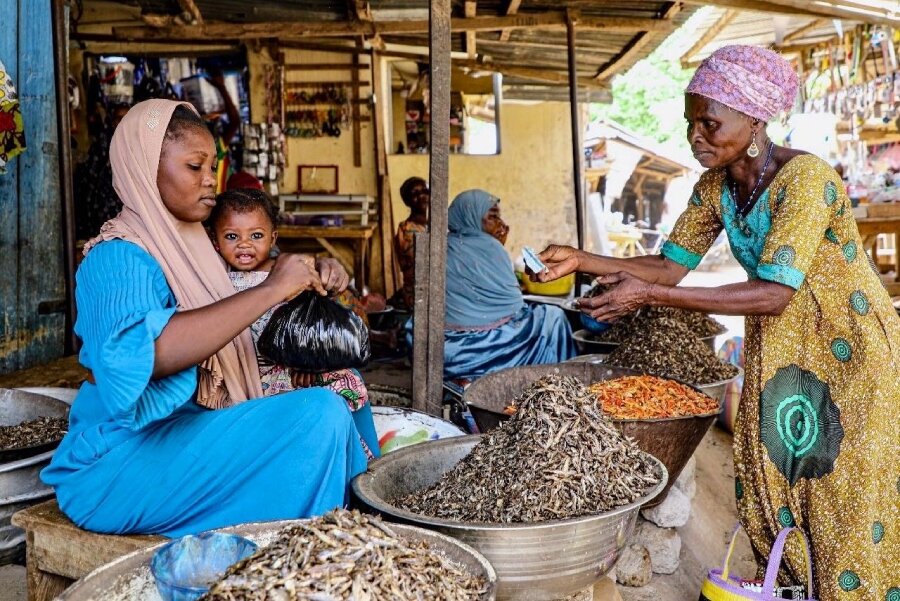
The courtyard of the Cinkanssé Prefecture, in northern Togo's Savanes region, is teeming with people on a sunny morning as a strident voice, amplified by loudspeakers, calls out Youlka Yayeti's name.
She heaves a sigh of relief. With her national identity and ration cards in hand, she hurries to the distribution point for World Food Programme (WFP) cash. She already knows what she'll spend it on.
"Since the arrival of refugees in our area, food is becoming more and more scarce in the market," says Youlka, who shelters 4 families - 15 people - who have fled armed conflict in neighbouring Burkina Faso.
Years of violence tearing apart Africa's central Sahel region are fueling a broader West African crisis, as unrest and refugees move southward into coastal countries, crossing the borders not just of Togo, but also of neighbouring Benin, Cote d'Ivoire and Ghana.
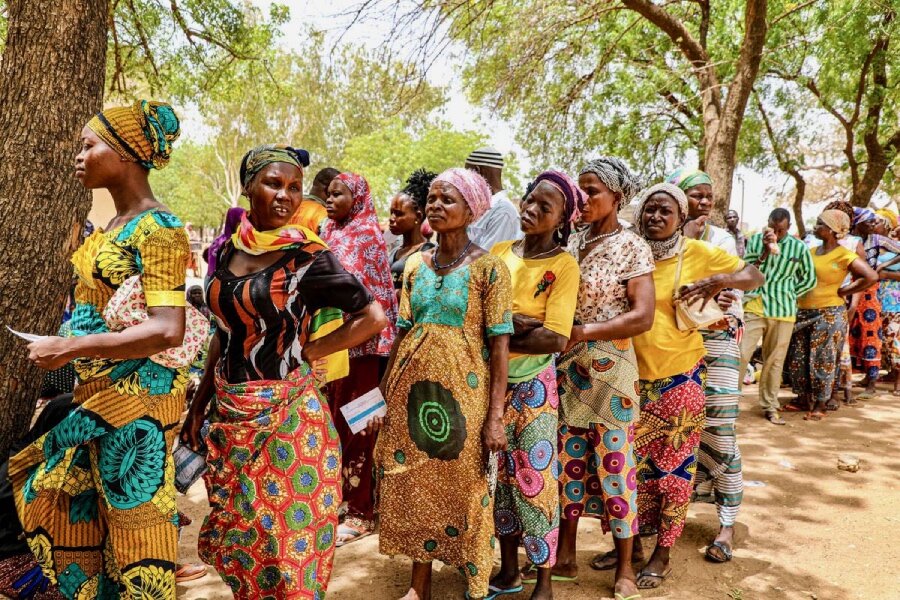
In less than six months, the number of asylum seekers and internally displaced people fleeing unrest has nearly quadrupled across the four coastal countries, from less than 30,000 in January to 110,000 last month.
In Togo alone, some 27,000 refugees - mostly women and children - have arrived from Burkina Faso since late 2021. The spreading conflict has also displaced 32,000 Togolese within their homeland.
Families like Youlka's have been welcomed in both groups. But their swelling numbers are stretching scarce food and other supplies of already fragile communities.
Food insecurity across West and Central Africa has hit a 10-year-high, predicted to affect more than 47 million people during the June-August lean seasons. Around 45,000 people face catastrophic hunger in parts of Burkina Faso and Mali, according to expert findings, as WFP is forced to drastically cut support in the Sahel for lack of funds.
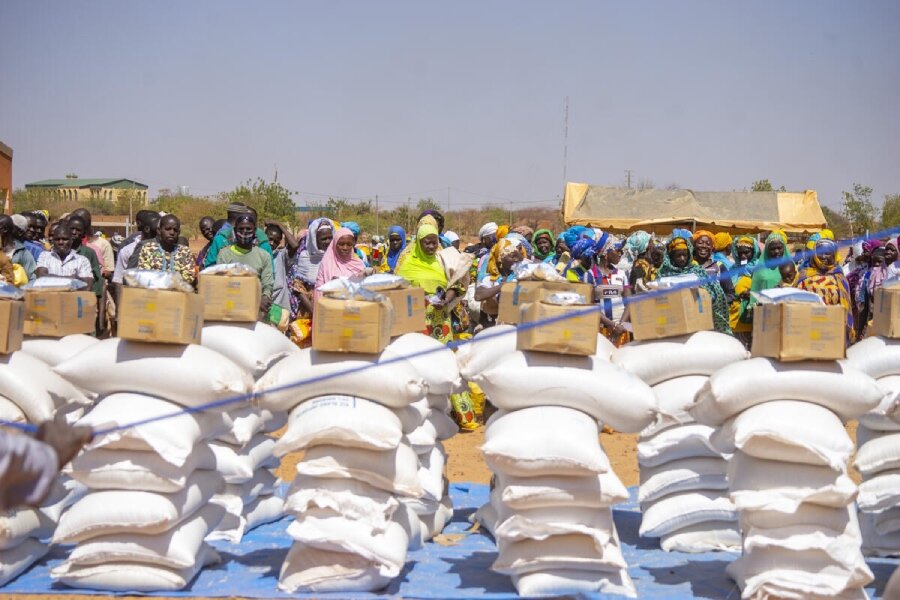
"The Sahel is at a critical turning point, with the conflict dynamics now growing beyond the borders, uprooting people from their homes and affecting communities' ability to access and cultivate their lands and raise their livestock," says Margot Vandervelden, acting Regional Director for Western Africa. "We need to act now to avoid seeing the crisis escalate to much bigger proportions."
WFP has developed a subregional strategy to support the governments of the four coastal countries in coping with the spillover of the Sahel crisis. Since February, we have been working with the Government of Togo to provide food assistance to those displaced, along with families hosting them.
In the Savanes region, which is particularly affected by the influx, we are now ramping up our emergency assistance in the form of cash, targeting 52,000 people. WFP is also providing enriched cereals to pregnant and breastfeeding women, along with children aged under 2.
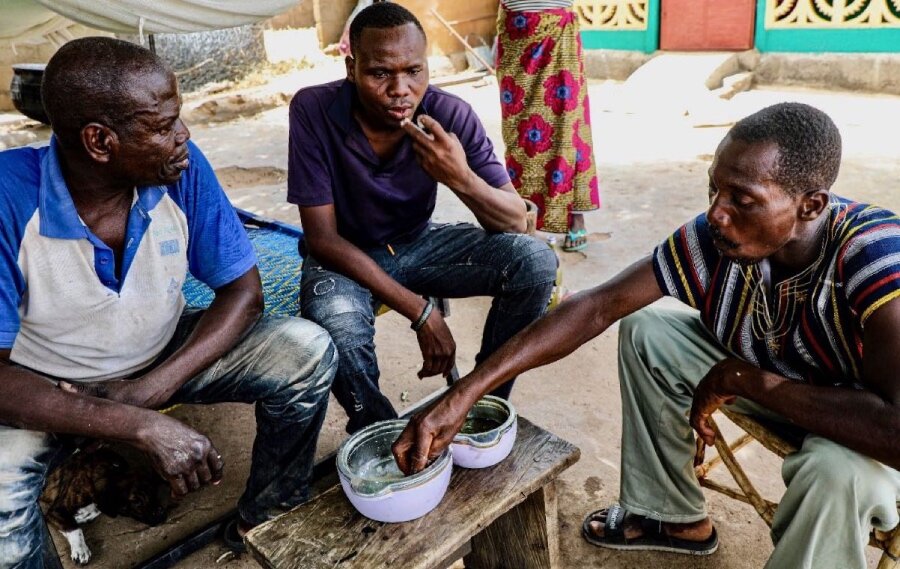
The assistance means Pobate Bomboma can finally provide for his family again. He was previously a welder in his home village of Kouldjaoure, in southern Burkina Faso.
He was working at his shop last December, when armed men attacked his village, burning houses, shops and fields. Probate narrowly escaped with his wife and two children, although the attackers looted his shop and robbed him of his belongings. The family fled to his uncle's home in the northern Togolese town of Cinkasse, just across the border.
"We tried to return to our farms but were beaten by the armed men before they chased us away," Pobate says.
Today, his uncle's home is packed with other conflict-displaced relatives from Burkina Faso, along with people now displaced within Togo. His uncle's family has been generous, sharing what they have with their many guests. WFP's assistance has helped.
"Thanks to these cash distributions, I can now provide food to my children as the head of my family," Pobate says.
Back at the WFP cash distribution point, a Government agent hands Youlka a stash of local CFA francs, amounting to about US$33. The money is enough so she can provide her family of nine with at least two basic meals a day over the month.
Youlka quickly puts the cash in her purse and prepares to bike to the local food market. She and her children have already discussed what she will cook up: her favorite meal of smoked fish, peanuts, cassava leaves and rice.
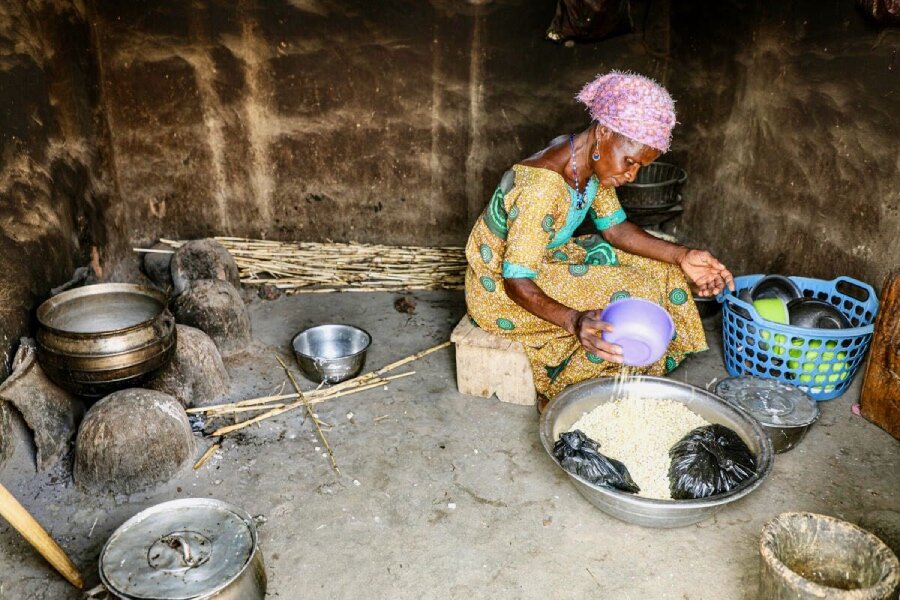
With her house packed with refugees, such meals are rare.
"We have more mouths to feed, even as our last year's harvest was hardly enough to feed ourselves," Youlka says of her 2022 crops that were destroyed by heavy rains.
"But", she adds, "they are all our brothers and sisters from the other side of the border. We cannot let them down, despite our own challenges."
WFP's food and nutrition assistance was made possible, in part, thanks to the financial contribution of the European Union through the Directorate-General for Civil Protection and European Humanitarian Aid Operations (ECHO), the United States Agency for International Development's Bureau for Humanitarian Assistance (BHA), China and multilateral funding.






